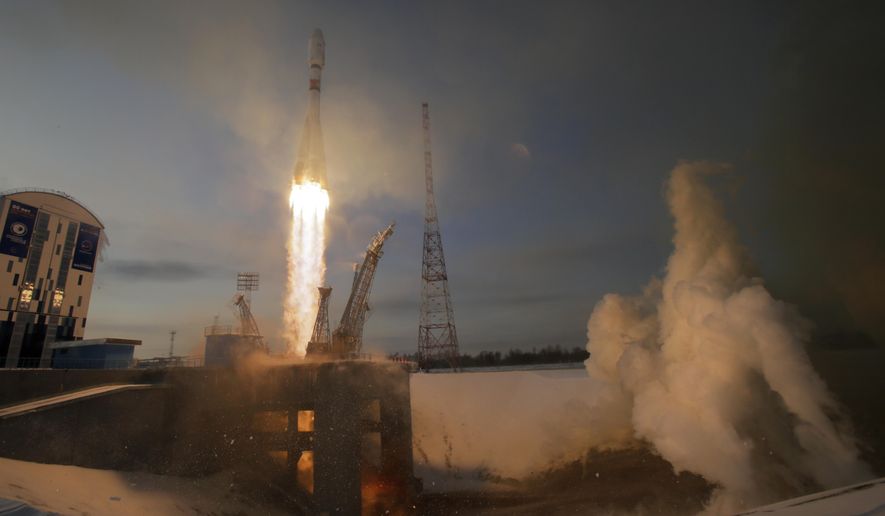A top State Department official warned Tuesday that Russian “space apparatus inspector” satellites are behaving unlike anything seen before, and that current international inspection protocol makes it virtually impossible to know whether they could actually be space weapons.
Yleem D.S. Poblete, assistant secretary of state for arms control, verification, and compliance, said Moscow has made clear that it wants to test and deploy weapons in space, and that the United Nations and other global bodies must enact stricter measures for what can and can’t be placed in orbit.
She said that Russian satellites — which Moscow insists are not hostile — launched last fall continue to behave in unusual ways, raising serious questions about what the Russian government has deployed.
“Its behavior on orbit was inconsistent with anything seen before from on-orbit inspection or space situational awareness capabilities, including other Russian inspection satellite activities We don’t know for certain what it is and there is no way to verify it,” Ms. Poblete said in a speech at a U.N. Conference on Disarmament meeting in Geneva.
“Now, I can tell you that our Russian colleagues will deny that its systems are meant to be hostile. The Russian Ministry of Defense has put out a press release stating these are simply inspector satellites,” she continued. “So the question before this body is: How do we verify what countries say their spacecraft are doing? What would be enough information to prove what the purpose of an object is?”
Her comments come just days after the White House and Pentagon announced a formal plan to create the U.S. “Space Force” as the sixth branch of the military, with a chief mission of guarding against any hostile action in space.
The U.S. intelligence community has said that Russia, China and even less advanced nations such as North Korea are eyeing space weapons, ranging from missile capabilities to cyberwarfare against space-based U.S. communications systems.
Ms. Poblete urged the U.N. to adopt a much stricter version of the “Treaty on the Prevention of the Placement of Weapons in Outer Space,” a document currently under review at the U.N. and designed to prevent any weapons systems from being deployed to space.
But Ms. Poblete said the current version of that treaty, being pushed by Russia and China, wouldn’t let the U.S. or international inspectors determine exactly what the Russian “inspector satellite” is designed to do.
• Ben Wolfgang can be reached at bwolfgang@washingtontimes.com.




Please read our comment policy before commenting.